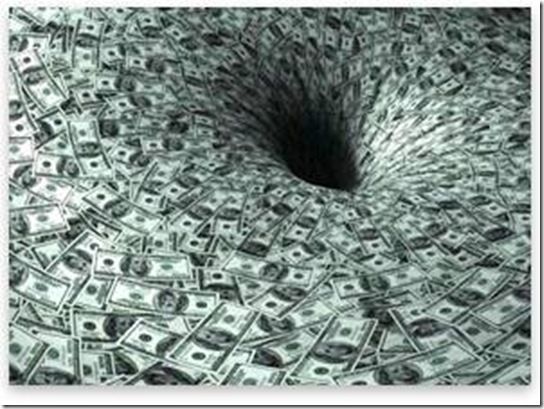Monday

Econ Monday
My apologies for another econ post, but I suspect things are reaching a fever pitch right now, so . . . * * * * * * * I wrote on Saturday that it's probably time to get out of the market. The mad geniuses at Zero Hedge vehemently disagree. In this (perhaps unhinged) post, they're predicting that the monetary eschaton is coming fast: Helicopter Ben will drop trillions from helicopters in order to prop up the markets. Everything in this environment will rise: stocks, bonds, and (especially) metals. Oh what to do? I don't know, but I am going to sell large amounts of my cash and deflationary investments (read: SH) and buy into commodity funds (Gabelli Gold and Central Fund of Canada). Do what you want, but if you're taking investment advice from an attorney and armchair philosopher, you're nuts . . . or maybe no worse off than taking advice from the mainstream. * * * * * * But wait. Maybe the folks at Zero Hedge are going long on metals in the immediate near term and are "hyping" the investments now, in order to get a quick hit in three days. It's possible. It's a very popular blog. I'm guessing they get around 100,000 visitors a day. Maybe they're playing me like a tool, putting out the post and waiting for smaller bloggers like me to regurgitate it and then the word will spread like cyber fire. So I guess this is the dilemma: I'm Bernanke's fool or Zero Hedge's tool. Hmmmmm. Zero Hedge seems sincere, they're Austrians, they hate the federal government, and, in that post, they're touting everything--stocks, bonds, metals. They like anything except cash, so it's not like they're hyping a particular investment. It's impossible to know, but I'm going with Zero Hedge. A guy has to cast his faith--and money--someplace. * * * * * * * A friend recently told me that you shouldn't invest in something you don't understand (we were looking at a complicated bull-bear fund). I told him that I agreed, but that, as a practical matter, every modern investment vehicle comes with a ton of uncertainty. I was listening to EconTalk last week, and a reputable economist said he winced when he heard Federal Reserve officials talk about Fannie Mae mortgage resales because he could tell that they really didn't understand how the market worked, but were holding forth like they were masters of understanding. Everything is so complicated and layered these day. Every investment is slathered with uncertainty. Sure, I understand the concept of a mutual fund--a fund manager invests in a batch of stocks, thereby giving you cost-effective access to a batch of stocks and professional advice--but how does the fund really work and what happens there day-to-day?

What is the net effect of fees? How are particular stocks selected? How does the money from gains actually end up in my account? How do I know the fund is solvent and not disbursing dividends from principal (as recently allegedly happened with a major dividend fund)? Does the fund hold positions with bogus accounting (ala Global Crossing)? Is the fund manager having a good day? A sober day? Maybe undergoing a divorce and is thereby distracted? Let's face it: Every investment is a leap of faith, and that's without even taking into account the uncertainty of the future.
